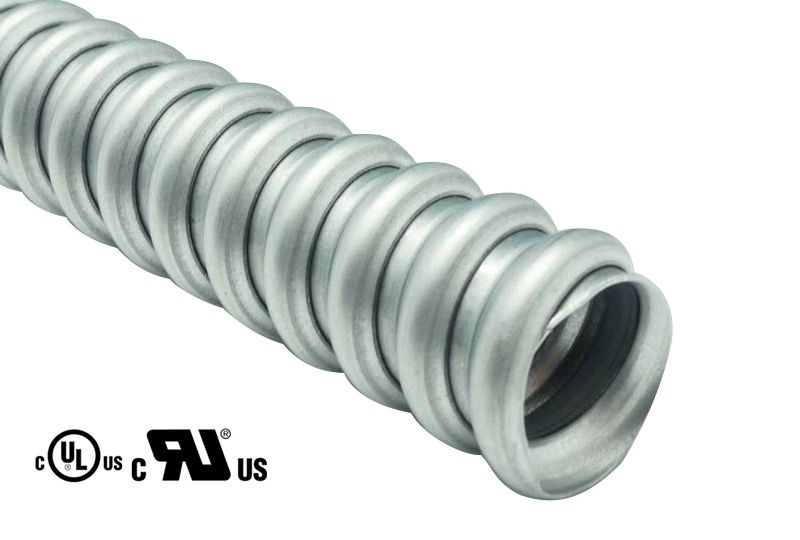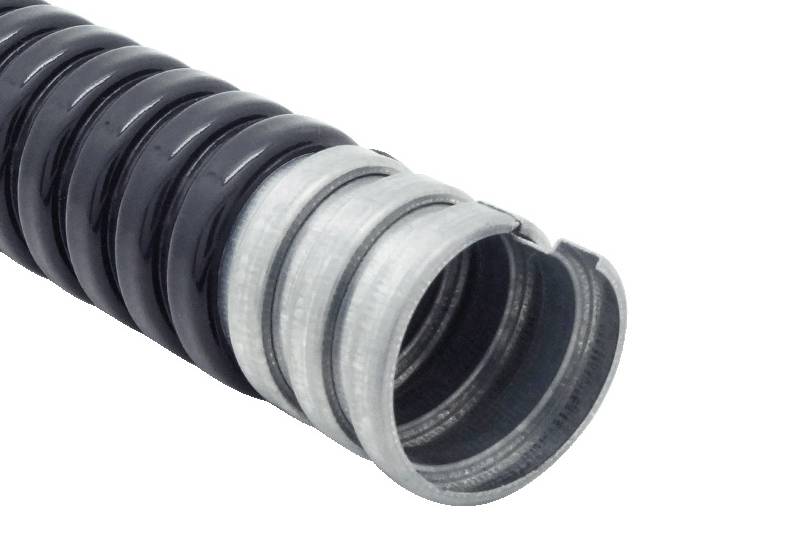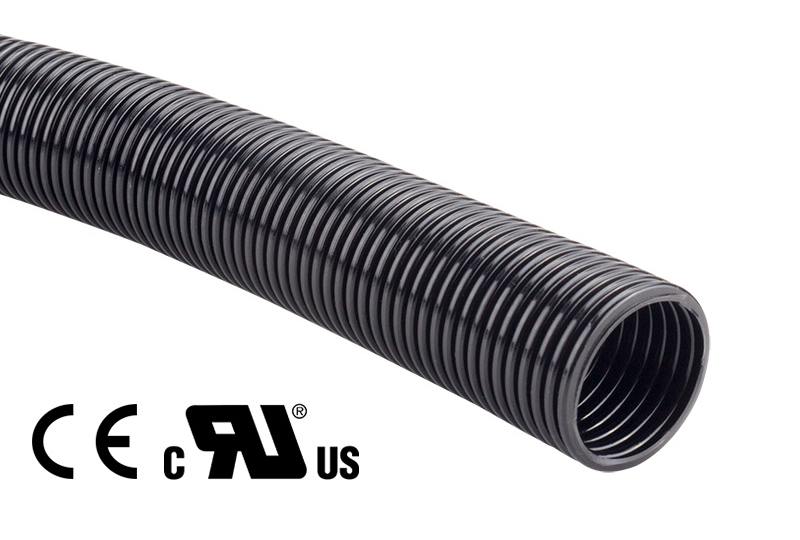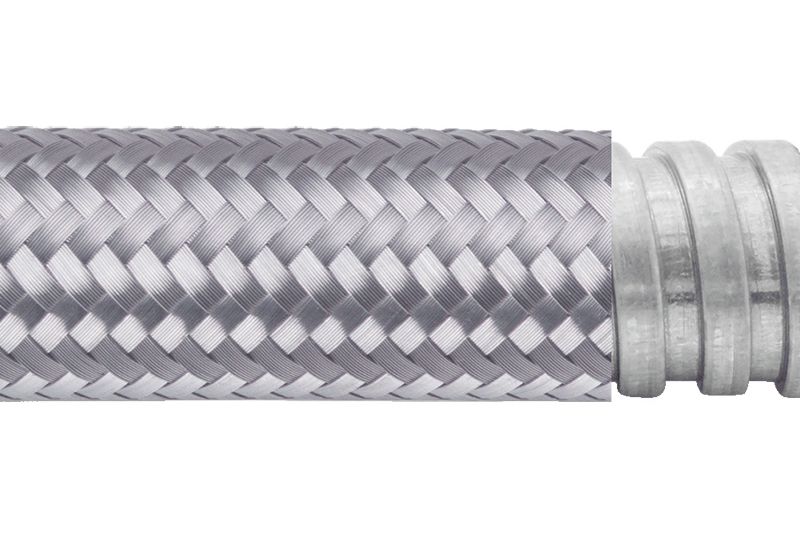Aug. 09, 2022
Overview
What Are Flexible Metal Conduits
Thicknesses For Flexible Metal Conduits
Flexible Pipes Types
Characteristics Of Flexible Metal Pipes
Kinds Of Flexible Metal Conduits
Related Flexible Metal Conduits Tags
What are Flexible Metal Conduits
Flexible Metal Conduit, is heavy-duty galvanized steel
tubing that is installed with threaded fittings. It is typically used outdoors
to provide protection from damage and can also provide structural support for
electrical cables, panels, and other equipment. Flexible metal conduits are sold in 10- and 20-foot lengths and have threads on both ends.
Buy Flexible Metal Conduits, Click Here for Details!
There are two different wall thicknesses for flexible metal conduits. The thicker flexible metal conduit is a full wall, while the thinner wall product is a reduced diameter flexible metal conduit. The whole wall is stronger and is specified where the code requires additional mechanical protection.

flex metal conduit
Intermediate metal conduit, or IMC, is a thinner, lighter-weight version of
rigid metal conduit and is approved for use in all of the same applications as
RMC. Because IMC is lighter and easier to work with than RMC, it is more common
in new construction.
Buy Flexible Metal Conduits, Click Here for Details!
Flexible Pipes Types
Wire ducts protect and route electrical wires. It can be made from many
materials, including metal, plastic, fiber or calcined clay. There are flexible
and rigid catheters. The type of conduit used is determined by national and
local regulations through wiring regulations.

Flexible Metal Conduit

Flexible plastic Conduit

Flexible fiber Conduit
By analyzing the wiring, you can determine when to use a flexible metal
conduit instead of a rigid conduit. Flexible metal conduits typically range in
diameter from 3/8 to 4 inches, but are typically ½ to 3/4 inches. It is mainly
used where rigid catheters are difficult to bend because flexible catheters can
bend.
Although flexible conduits are easier to work with than rigid conduits, it
offers less protection for the conductors it carries. Bending a rigid conduit
can be an arduous task so it is often preferable to opt for the flexible
variety. Being a metal conduit, it has an advantage over PVC conduits which
cannot bend. It may also serve as the grounding path although some local codes
may require that you also run a green grounding wire.
And where should you not use the flexible metallic conduit?Due to their lack of waterproof protecting jackets, they are not suitable for areas which are prone to moistureBasics of flexible metal conduit
Buy Flexible Metal Conduits, Click Here for Details!
As a Flexible Conduit Factory, let us tell you the Basics of
flexible metal conduit.
Flexible metal conduits are made from steel or aluminum by coiling a
self-interlocking ribbed strip of the metal. This forms a tube. The diameter of
this tube can vary and different end applications call for different diameter
tubes. Wires are pulled through this tube and are thereby protected from damage,
both internal and external.
The tubing is flexible and can bend to fit your installation application.
Unlike rigid conduits where you either have to manually bend the conduit to a
fixed position or buy a pre-bent conduit, the flexible metal conduit can change
its shape as you install it and as repairs or changes need to be made. The word
flexible in its name may refer to its ability to flex in a given situation, but
it also can refer to the flexibility it offers in your installation.
Short segments of FMC are called whips. You often find these as circuit
pigtails between junction boxes and fixtures. A suspended ceiling is an
excellent application for a flexible metal conduit whip. Whip assemblies are
available for sale and can save you time when you need several of these
pigtails.
Flexible metal pipes are flexible metal conduits used for line
protection.
The material of the flexible metal pipe is: the outer layer is wound by
hot-dip galvanized steel strip, and the inner wall is an insulating resin
layer.
Buy Flexible Metal Conduits, Click Here for Details!
Characteristics of flexible metal pipes:
1. The outside of the flexible metal tube is wound by a metal band, so it has
excellent flexibility.
2. The outer metal strip of the flexible metal tube has corrosion resistance,
tensile resistance and wear resistance.
3. The inner wall of the insulating resin layer of the flexible metal tube
can withstand high temperatures.
Location of Installation:
Flexible metal conduits are primarily used in dry applications although FMC
is available with a UV resistant polymer that makes it watertight. Appropriate
liquid tight fittings are required when using this type of conduit in a wet
application.
Flexible metal conduits can be installed in most of the same places that
rigid conduits are installed.
And we can provide you many kinds of Flexible Metal Conduits to use:
Flexible Metal Conduit (UL1)-PSWG Series
Galvanized Steel Flexible Metal Conduit (Standard Wall)
Flexible Metal Conduit (UL1)-PRWA Series
Aluminum Flexible Metal Conduit (Reduced Wall)
Flexible Metal Conduit (UL1) - PRWG Series
Galvanized Steel Flexible Metal Conduit (Reduced Wall)
Flexible Metal Conduit Low Fire Hazard - PEG13X-UK Series
Flexible Metal Conduit, Square-lock Galvanized Steel

Our company also have flexible metal conduit for sale,
welcome to consult us.
related tags:
5/16 flexible metal conduit
liquid tight metal flexible conduit
over braided flexible metal conduit
flexible metal conduit by the foot
liquidtight flexible metal conduit fittings
flexible metal conduit fittings
1/4 inch flexible metal conduit
flexible metal conduit connectors
flexible metal conduit with wire
liquid tight flexible metal conduit
2 flexible metal conduit
1 1 4 liquid tight flexible metal conduit
1 liquid tight flexible metal conduit
liquid tight flexible metal conduit connector
liquidtight flexible metal conduit connector
1 flexible metal conduit
flexible metal conduit
1 2 liquid tight flexible metal conduit
flexible metal electrical conduit
1 1 2 liquid tight flexible metal conduit
3 8 liquid tight flexible metal conduit
1 1 4 flexible metal conduit
3 4 flexible metal conduit
2 inch flexible metal conduit
1 2 flexible metal conduit
1 1 2 flexible metal conduit
1 inch flexible metal conduit
3 8 flexible metal conduit



















